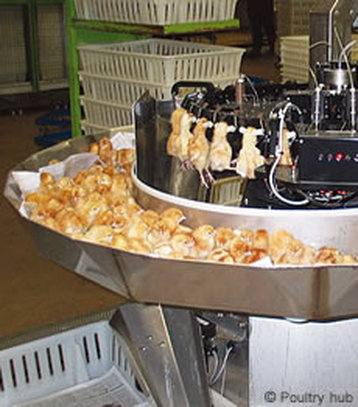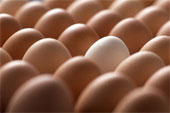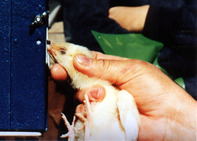Laser beak trimming at day old

This is how chicks are beaked-trimmed in modern hatcheries. The day-old birds are placed in a carousel and the tips of the beaks are automatically removed. The process is probably more humane that the hot blade system pictured above which is still used in Australia - but it is a completely unecessary process for birds which are supposed to be 'free range'.
Many of the chickens bred for the egg industry have aggressive tendancies, because the only attributes which matter to the industrial egg producers are the number of eggs each birds lays and the minimal consumption of feed.
Other breeds are available which are far less aggressive - but which probably don't lay quite as many eggs.
Many of the chickens bred for the egg industry have aggressive tendancies, because the only attributes which matter to the industrial egg producers are the number of eggs each birds lays and the minimal consumption of feed.
Other breeds are available which are far less aggressive - but which probably don't lay quite as many eggs.


